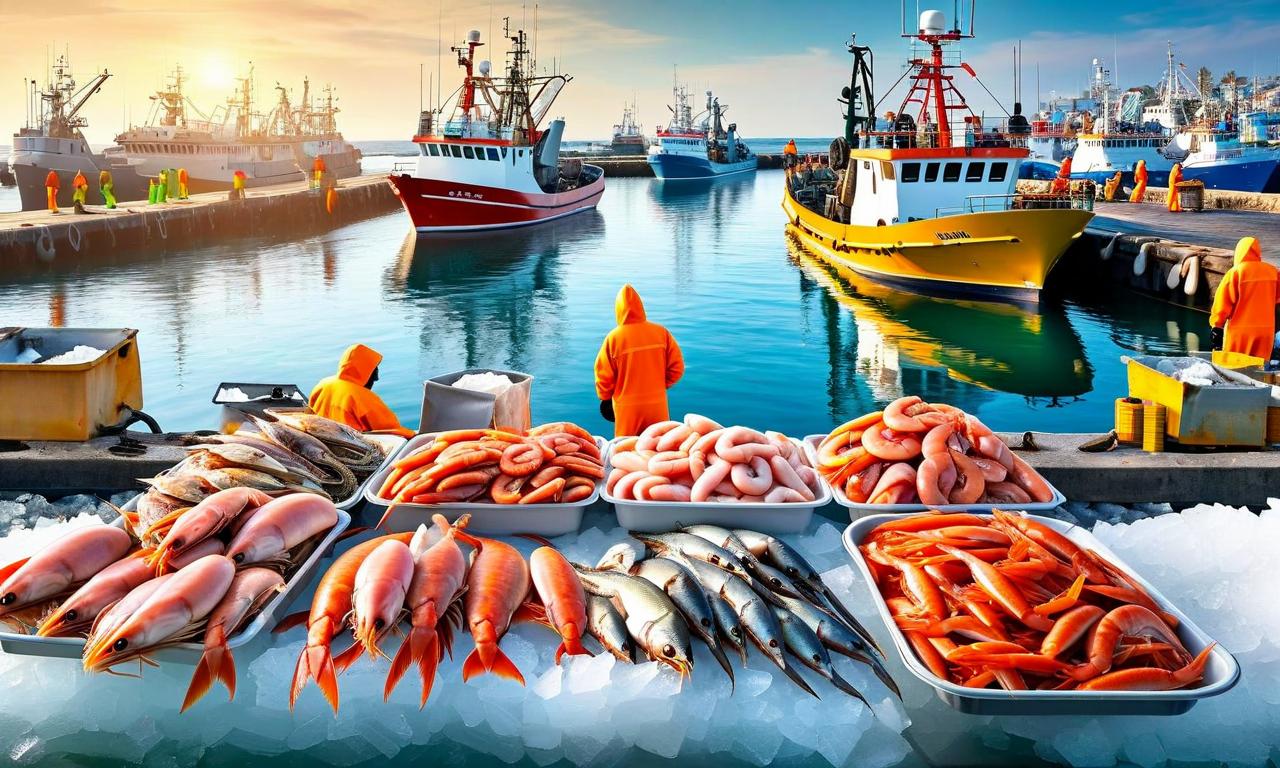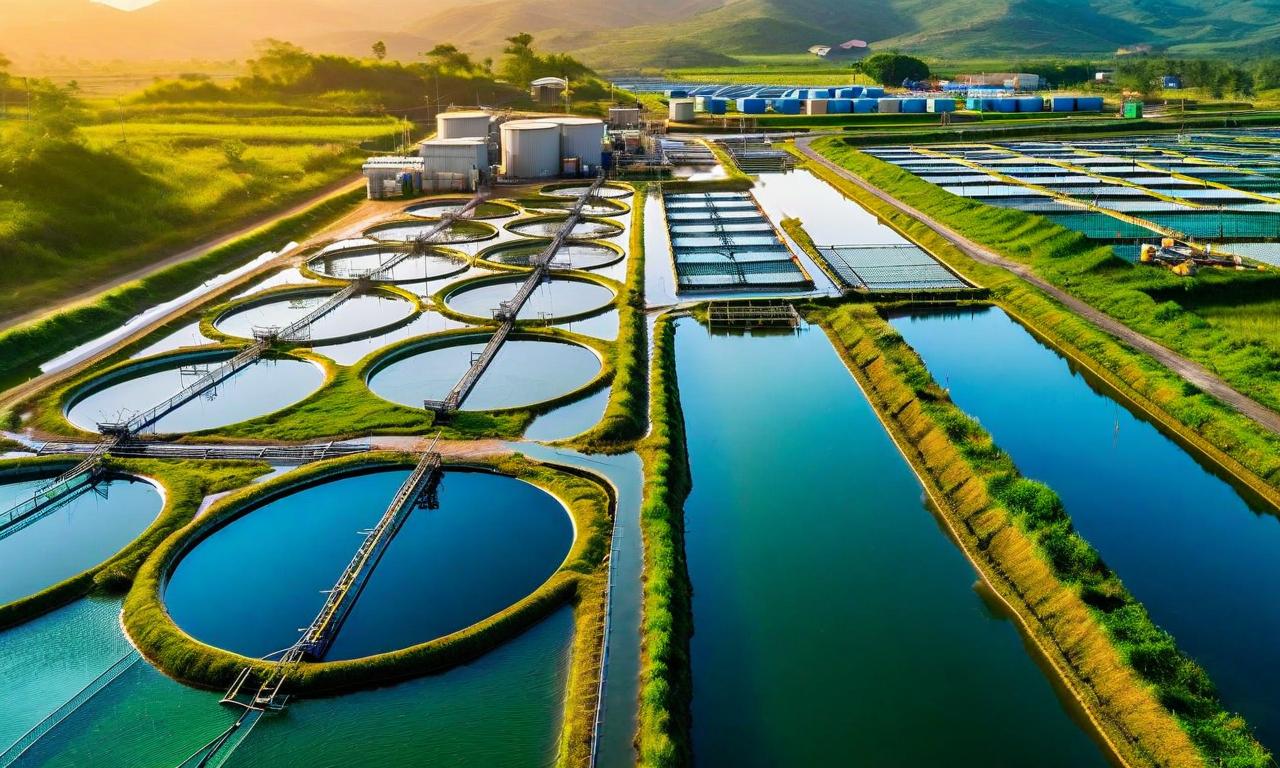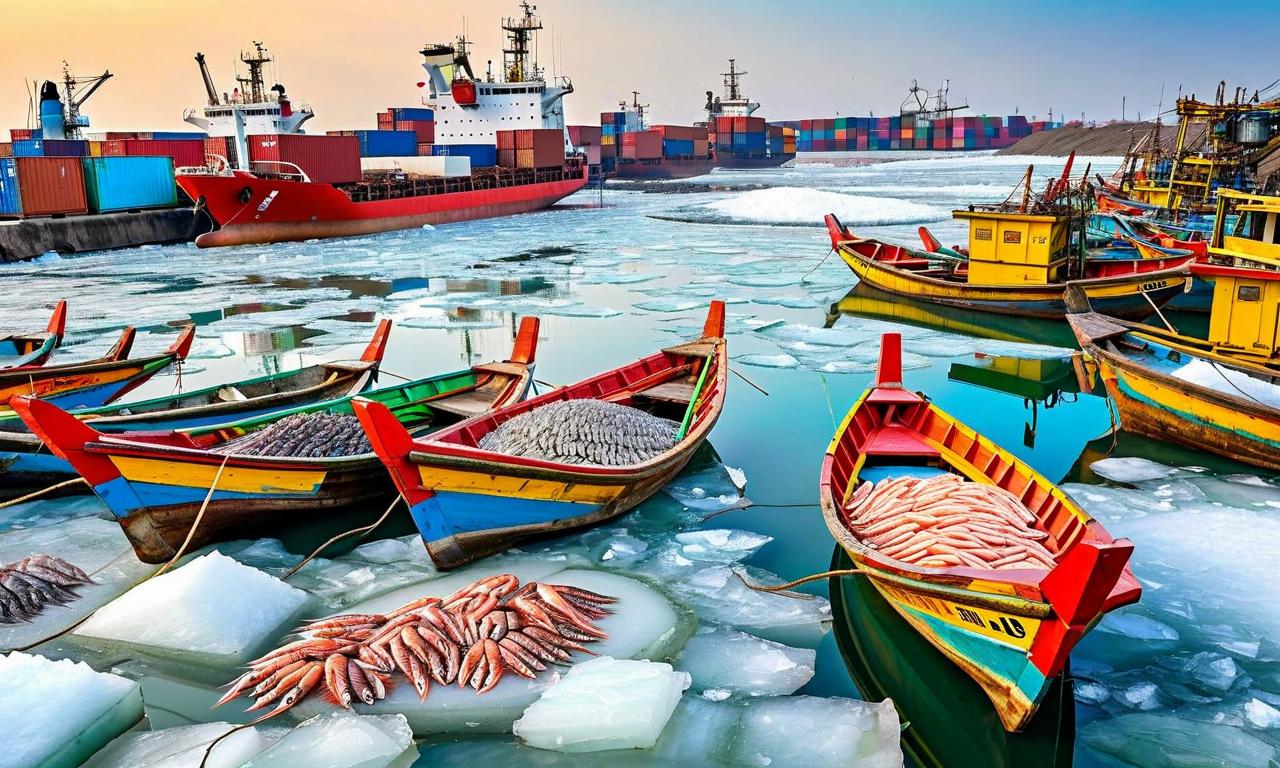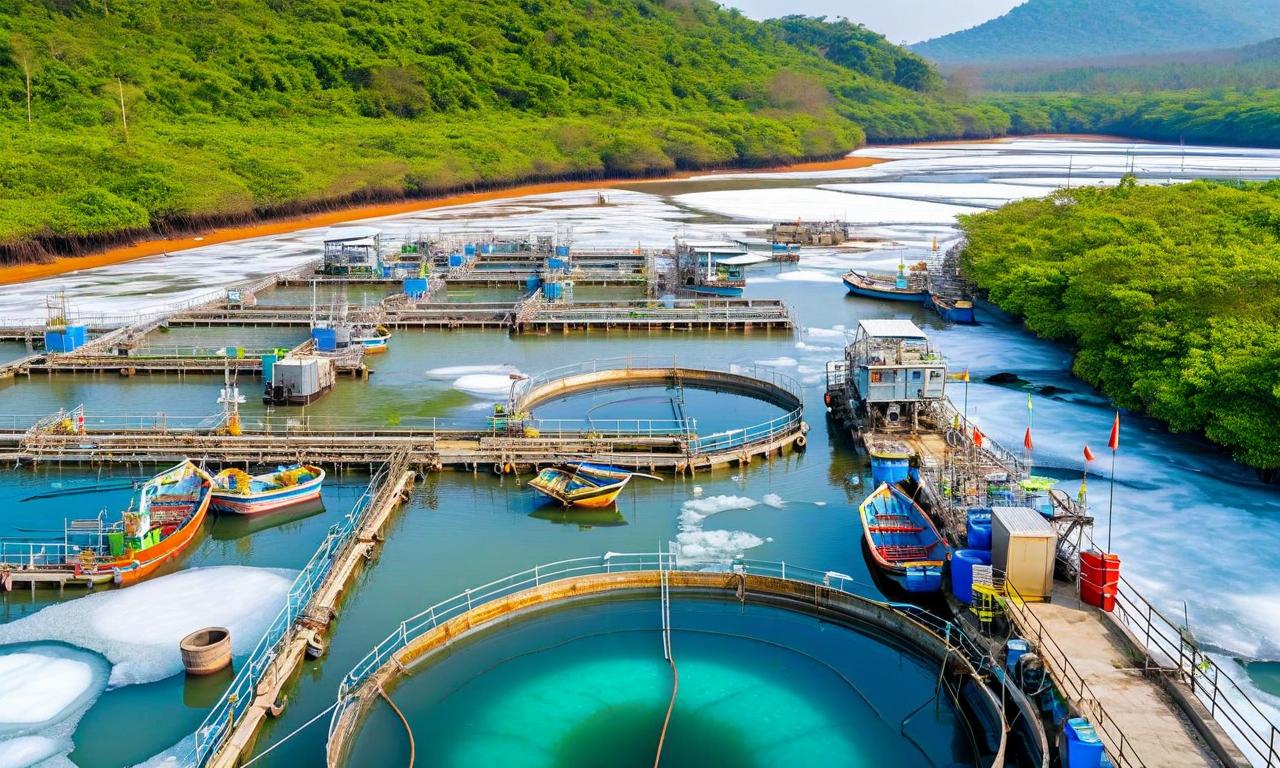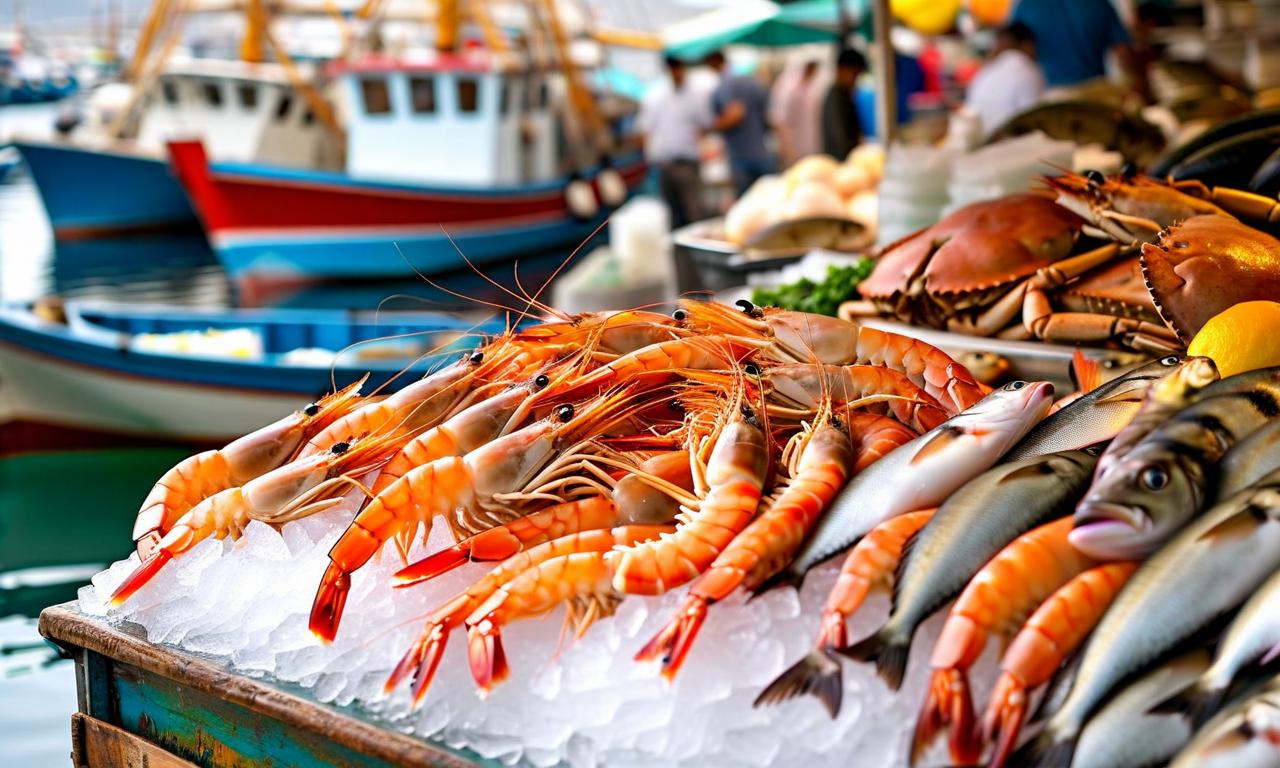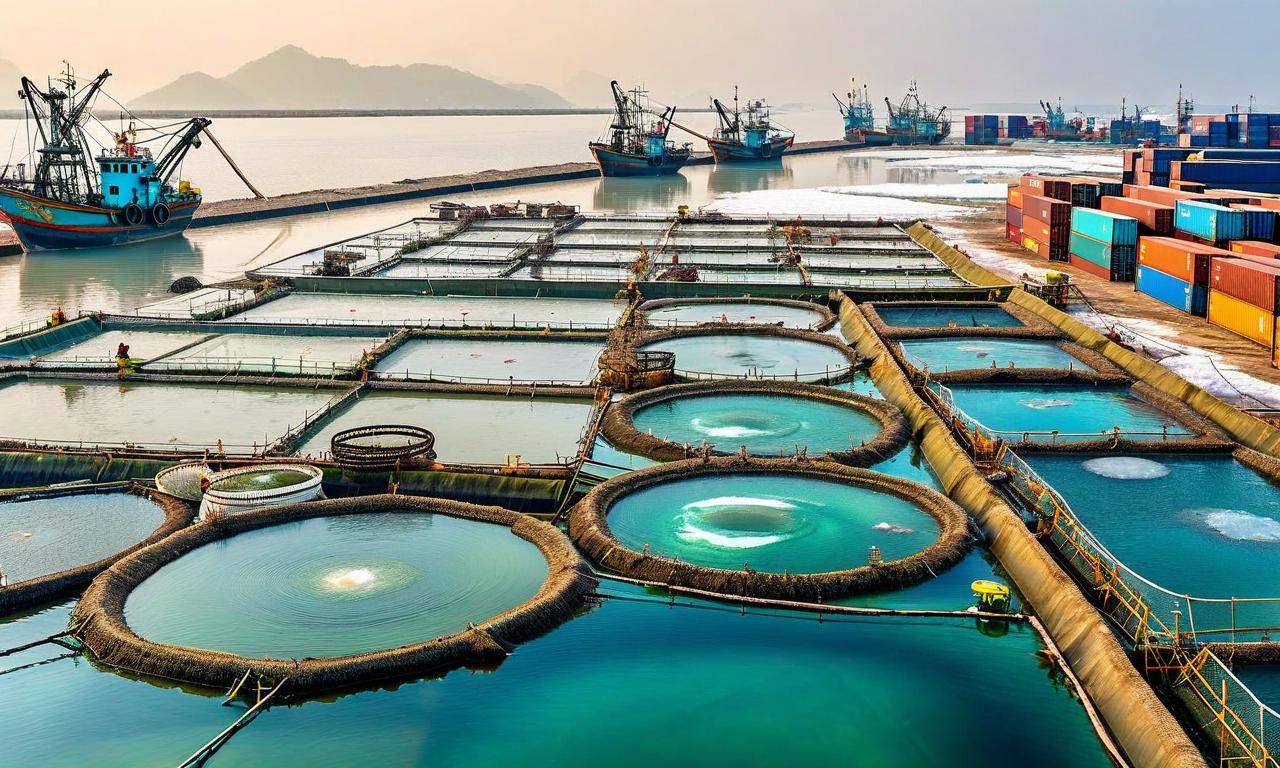USFDA Approves Indian Turtle Excluder Device, Set to Revive Wild-Caught Shrimp Exports
The US Food and Drug Administration has approved India's Turtle Excluder Device for shrimp trawl fisheries, potentially lifting the US ban on wild-caught shrimp imports from India. This approval is expected to boost India's seafood exports, potentially generating ₹1,200–1,500 crore annually in additional revenue. The Indian TED, designed by the Central Institute of Fisheries Technology, reduces turtle mortality by up to 97% and is optimized for tropical marine conditions. This development is seen as a significant milestone for India's seafood industry, potentially reopening the US market which accounts for 30% of India's shrimp export value.
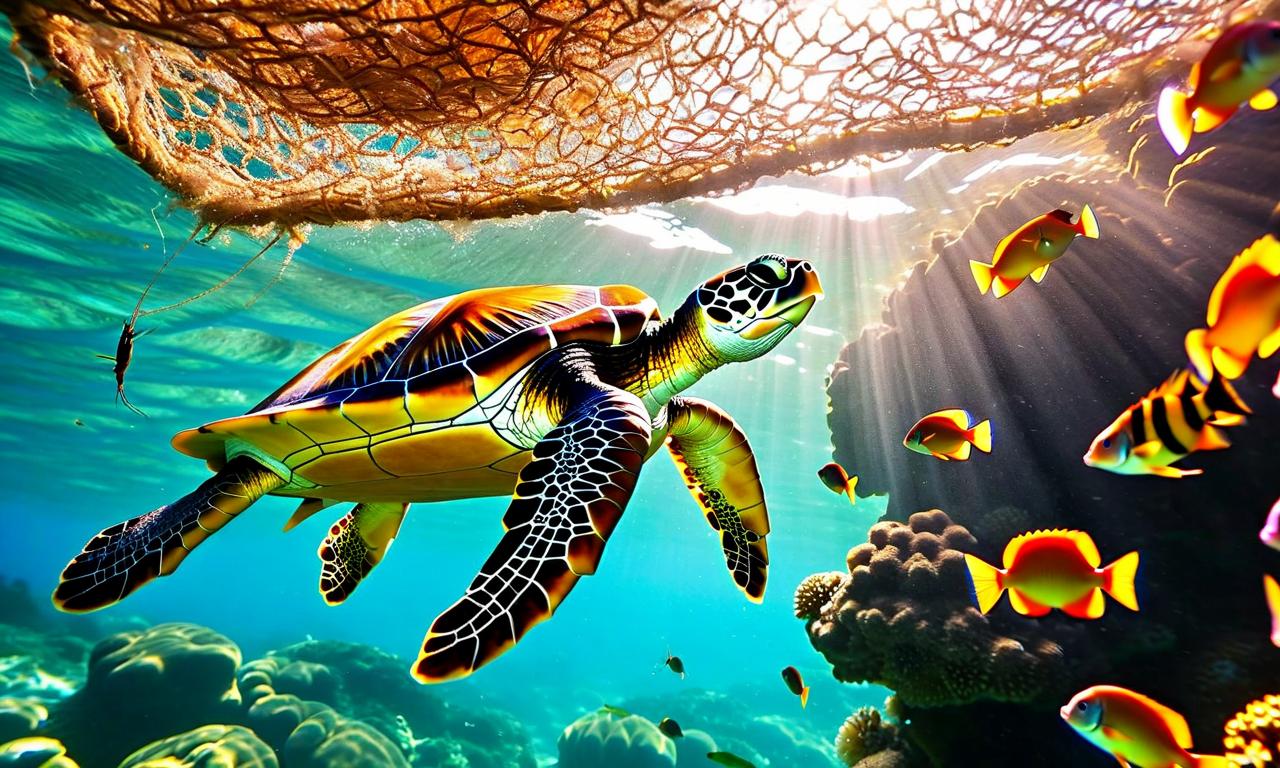
*this image is generated using AI for illustrative purposes only.
The US Food and Drug Administration (USFDA) has approved India's Turtle Excluder Device (TED) for shrimp trawl fisheries, paving the way for the lifting of a US ban on wild-caught shrimp imports from India. This development represents a significant regulatory milestone for Indian shrimp exports to the US market and is expected to have far-reaching implications for the seafood industry.
Background and Significance
The US imposed a ban on wild-caught shrimp imports from India in 2021 under Section 609 of the US Endangered Species Act, citing concerns over sea turtle conservation. The approval of the Indian TED, designed and standardized by the Central Institute of Fisheries Technology (CIFT), is a crucial step towards addressing these concerns and reopening the lucrative US market for Indian shrimp exporters.
Key Features of the Indian TED
The Indian TED has been optimized for multi-species trawl nets and tropical marine conditions:
| Feature | Specification |
|---|---|
| Grid spacing | 10.2 cm (4 inches) |
| Purpose | Shrimp retention |
| Design | Escape hatch angles and dimensions for turtle survival |
| Materials | Durable, marine-grade for tropical waters |
| Validation | Across Kerala, Tamil Nadu, and Odisha coasts |
| Turtle mortality reduction | Up to 97% |
Expected Impact on India's Seafood Sector
The approval of the TED and the anticipated lifting of the US ban are expected to have significant positive impacts on India's seafood industry:
| Impact Area | Projected Outcome |
|---|---|
| Additional export revenue | ₹1,200–1,500 crore annually |
| Market access | Reopening of US market (30% of India's shrimp export value) |
| Industry revival | Small and medium trawler operations and traditional processing hubs |
| Livelihood improvement | Thousands of coastal families, especially women in shrimp processing |
| Export varieties | Boost for traditional small wild-caught shrimp (e.g., Poovalan and Kari Kadi) |
| Export hubs | Malabar coast, particularly Kollam and Kochi |
Industry Reaction and Next Steps
Kings Infra Ventures Chairman and MD, Shaji Baby John, hailed the development as "a landmark moment for India's seafood industry." He emphasized that the successful TED design showcases the strength of India's scientific institutions and Kerala's traditional shrimp expertise, positioning India to regain global leadership in shrimp exports while embracing sustainability.
The Marine Products Export Development Authority (MPEDA) is expected to issue guidelines and conduct training programs to ensure nationwide adoption of TEDs across coastal fisheries. This will enable compliance with international export standards and solidify India's position as a responsible and sustainable seafood exporter.
Broader Implications
While tariffs remain a challenge in the broader US-India trade relationship, the resolution of this regulatory barrier through scientific collaboration and innovation sets a positive precedent. It demonstrates that sustained efforts can overcome trade challenges and may serve as a model for addressing other regulatory issues in international trade.
As India's seafood industry adapts to these new requirements, it is poised to strengthen its position in the global market, balancing economic growth with environmental responsibility. The successful implementation of the TED program could mark a new chapter in sustainable fishing practices and international trade relations in the seafood sector.
Historical Stock Returns for Kings Infra Ventures
| 1 Day | 5 Days | 1 Month | 6 Months | 1 Year | 5 Years |
|---|---|---|---|---|---|
| -1.35% | -1.98% | -1.98% | -14.55% | -6.99% | +422.08% |

